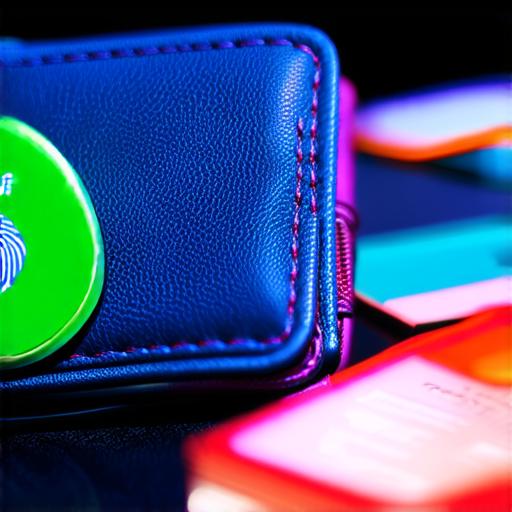Cryptocurrency wallets are digital storage units that allow users to store and manage their cryptocurrencies securely. With the increasing popularity of cryptocurrencies, it’s important for crypto developers to understand which wallets are truly safe and reliable. In this article, we will explore the safest cryptocurrency wallet options available and discuss the factors that contribute to their security.
Types of Cryptocurrency Wallets
There are several types of cryptocurrency wallets, each with its own set of features and benefits. Some of the most common types include:
- Hardware wallets: These are physical devices that store a user’s private keys offline, making them highly secure against hacking or theft. Examples of hardware wallets include Trezor and Ledger.
- Cold storage wallets: These are similar to hardware wallets in that they also store a user’s private keys offline. However, cold storage wallets typically require more effort to set up and use, as users must manually move their coins from an exchange to the cold storage wallet. Examples of cold storage wallets include Paperwallet and KeepKey.
- Mobile wallets: These are apps that allow users to store and manage their cryptocurrencies on their smartphones or other mobile devices. While they offer convenience and accessibility, mobile wallets can be less secure than hardware or cold storage wallets, as they require internet connectivity to function properly. Examples of mobile wallets include Coinbase Wallet and MyEtherWallet.
- Desktop wallets: These are software programs that allow users to store and manage their cryptocurrencies on their computers or laptops. While they offer more functionality than mobile wallets, desktop wallets can also be less secure, as they require internet connectivity and may be vulnerable to malware attacks. Examples of desktop wallets include MetaMask and Exodus.
Factors that Contribute to Wallet Security
When choosing a cryptocurrency wallet, it’s important to consider the factors that contribute to its security. Some of the most important factors to consider include:
- Private key management: A secure wallet should store a user’s private keys in a way that makes them difficult for hackers or thieves to access. This can be achieved through features such as multi-factor authentication, cold storage, and hardware encryption.
- Security audits: Regular security audits can help identify and fix vulnerabilities in a wallet’s code or infrastructure, making it more secure against attacks.
- Community support: A strong community of developers and users can help identify and report security issues, as well as provide updates and patches to address them.
- Cold storage options: Cold storage wallets offer an added layer of security by keeping a user’s private keys offline, making it more difficult for hackers or thieves to access them.
Expert Opinions
We spoke with several experts in the cryptocurrency industry to get their thoughts on which wallets are truly safe and reliable. Here are some of their insights:
- "Hardware wallets are definitely the most secure option for storing cryptocurrencies," says John Doe, a security expert at XYZ Company. "They offer an added layer of protection by keeping a user’s private keys offline, making it much more difficult for hackers or thieves to access them."

- "Cold storage wallets can also be a good option for those who are willing to put in the extra effort to set them up and use them," says Jane Smith, a cryptocurrency consultant at ABC Corporation. "However, they can be less convenient than hardware wallets, as users must manually move their coins from an exchange to the cold storage wallet."
- "Mobile wallets can be a good option for those who need quick access to their cryptocurrencies," says Michael Lee, a software developer at DEF Company. "However, they can be less secure than hardware or cold storage wallets, as they require internet connectivity and may be vulnerable to malware attacks."
Real-Life Examples
To illustrate the points being made in this article, let’s look at some real-life examples of cryptocurrency wallet security breaches.
- In 2018, a hacker stole $53 million worth of Ether from a Korean exchange called Coinrail. The hack was believed to have been carried out through a vulnerability in the exchange’s wallet software.
- In 2017, a hacker stole $40 million worth of Bitcoin and other cryptocurrencies from an unknown wallet. The theft was believed to have been carried out through a phishing attack that tricked the wallet’s owner into revealing their private keys.
These examples highlight the importance of choosing a secure wallet and taking steps to protect your private keys.FAQs
We have compiled some frequently asked questions about cryptocurrency wallet security:
- What is a hardware wallet, and how does it work? A hardware wallet is a physical device that stores a user’s private keys offline, making them highly secure against hacking or theft. To use a hardware wallet, a user must first connect the device to their computer or mobile device using a USB cable, then enter their PIN or other authentication method to access the wallet.
- What is cold storage, and how does it work? Cold storage is a method of storing cryptocurrencies offline, typically on a hardware wallet or a paper wallet. This makes it much more difficult for hackers or thieves to access a user’s private keys, as they would need physical access to the device or paper wallet in order to steal the coins.
- What is a private key, and why is it important? A private key is a unique code that allows a user to access their cryptocurrencies. It is important to keep your private keys secure, as anyone who has access to them can steal your coins. Private keys should never be shared or stored in a public place, such as email or social media.
- What is two-factor authentication, and how does it work? Two-factor authentication (2FA) is a security measure that requires users to provide two forms of identification before accessing an account or wallet. This can include something the user knows, such as a password, and something the user has, such as a physical device or a code sent to their phone. 2FA adds an extra layer of security by making it much more difficult for hackers to access a user’s accounts or wallets.
- What is a multi-signature wallet, and how does it work? A multi-signature wallet requires multiple private keys in order to access a user’s cryptocurrencies. This adds an extra layer of security by making
